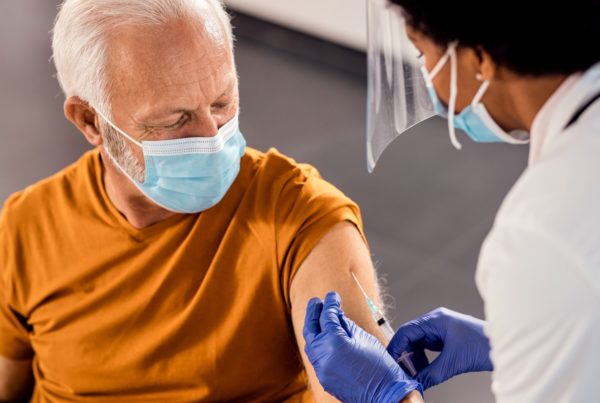
Health is our most precious resource—which is why disease prevention is a key component in managing employee health risk. Based on research on preventive health care conducted by Canadian and U.S. task forces, Canadian physicians are recommending that their patients invest in a periodic health examination (PHE). A PHE is a comprehensive, extended medical check-up that focuses on both physical and mental health and well-being. Given that PHEs emphasize the importance of prevention, organizations should consider promoting them as part of their overall employee health and wellness communication plan.
While a regular check-up or annual physical might be common practice for you and your family, periodic health examinations (PHEs) may still be unfamiliar territory. A PHE is a more comprehensive medical check-up, and is worth the time investment.
It can help you understand your particular health risk factors, determine how often you should be visiting your doctor, and open your eyes to potential health concerns. Unlike an average check-up, a PHE gives you and your doctor more time to discuss your overall health and well-being, focusing on both physical symptoms and mental health.
The sections below outline what adults (aged 21–64) might commonly experience during a PHE. Developed by Canadian physicians, this information is based on research from both the Canadian Task Force on Preventive Health Care and the United States Preventive Services Task Force (U.S. resource). Since a PHE may vary according to your individual needs, the information below is only a general summary. Always be sure to talk to your doctor about what steps best apply to you.
Health-related questions
Most PHEs begin with a simple conversation. Your doctor may ask you questions about changes in your personal life, work, or diet in order to update your health records and learn about the current status of both your physical and mental health. This is the perfect time to discuss your concerns and inform your doctor of any recent changes to your lifestyle or health. Always make sure to let your doctor know if you have any allergies, and bring along a list of current medications (and their dosages), including vitamins and supplements.
After this initial chat, your doctor will ask you some questions more closely related to your physical health. These questions usually target the main systems of the body (e.g., cardiovascular, respiratory, digestive, reproductive, immune, neurological, etc.). To assess your current health status, the following areas will likely be addressed:
- Vision
- Hearing
- Nasal passages and airway
- Oral health habits
- General comprehension (e.g., how well do you process information?)
- Overall mental health (e.g., are you showing signs of depression or risk of suicide?)
- Lifestyle factors, such as tobacco use, alcohol intake, exercise frequency, drug use, sexual health, STI risk, employment satisfaction, and safety
- Cardiac risk factors, such as high blood pressure, high cholesterol levels, diabetes
- Immunization status (especially chicken pox, HPV, and rubella)
- Family history of illness (especially heart disease, cancer, and mental health)
Physical examination
The next step in your PHE is a physical examination. During this portion of your health assessment, your doctor will look for any abnormalities by checking the following:
- Blood pressure
- Weight
- Height
- Surface of skin (especially in fair skinned people and those with a family history of skin cancer and/or other skin conditions)
Women may receive a clinical breast exam, a gonorrhoea and chlamydia swab (if at high risk), a PAP test, and a pelvic exam. Men may be checked for prostate cancer through a digital rectal exam.
There is also a general physical examination (or ‘head to toe’ exam) that may be performed if your medical history warrants it. Talk to your doctor about whether this exam applies to you.
Counselling
Once your physical examination is complete, your doctor may also offer limited counselling on the following topics if they are relevant to your personal circumstances:
- Smoking cessation
- Alcohol intake (e.g., drinking and driving)
- Diet and exercise (e.g., suggesting a diet with more leafy greens; recommending exercise to maintain a healthier weight; etc.)
- Dental (e.g., discussing your brushing and flossing habits and/or how often you have a complete dental cleaning performed)
- General safety (e.g., seatbelt use, STI prevention, etc.)
- For parents: Children’s safety (e.g., poison control, presence of smoke detectors, thermostat settings, etc.)
Tests and treatments
Based on your age, gender, risk factors, and the findings from your exam, your doctor may recommend the following tests and treatments:
- Colon cancer screening (if you are over the age of 50)
- A blood sugar level
- A tuberculosis test (if you are considered high risk)
- A mammogram (for women: aged 50–69; every 1–2 years)
- A Prostate Specific Antigen (PSA) test to check for prostate cancer
- STI testing to check for HIV, gonorrhoea, syphilis, and chlamydia (if you are considered high risk)
- Bone Mineral Density (BMD) testing to screen for osteoporosis (for older individuals)
- Immunization update (e.g., flu shot, chicken pox, tetanus, and rubella, for women who may become pregnant)
- Medications to regulate blood pressure, cholesterol, diabetes, bone health, and other conditions (e.g., vitamin D and calcium for bones; folic acid supplement for pregnant women and those thinking of becoming pregnant, etc.)
Referrals for smoking cessation, nicotine replacement therapy, alcohol cessation programs, etc.
Your doctor will likely conclude your PHE by providing you with an oral summary of the findings. They may also indicate when and where any additional tests will be performed. Don’t be afraid to ask questions related to your test results, or what your next steps should be. Be proactive; book your follow-up appointment before you even leave the clinic.
Remember! It could be a while before you have the chance to speak with a health care professional in such detail. So take advantage of the time you spend with your doctor for your PHE. Feel completely free to ask questions and share your concerns.
For more insight, check out these health articles.
Key Websites
- Agency for Healthcare Research and Quality: U.S. Preventive Services Task Force (U.S. resource)
- Canadian Task Force on Preventive Health Care



